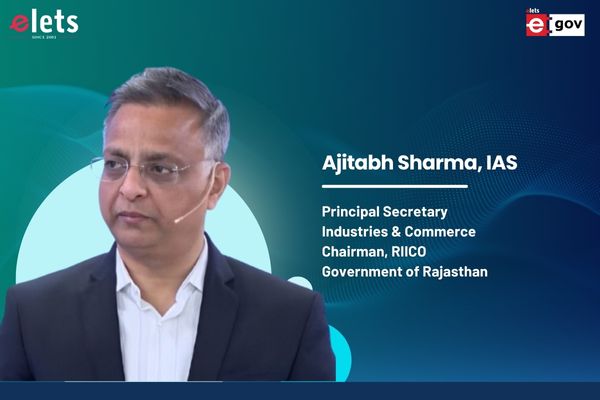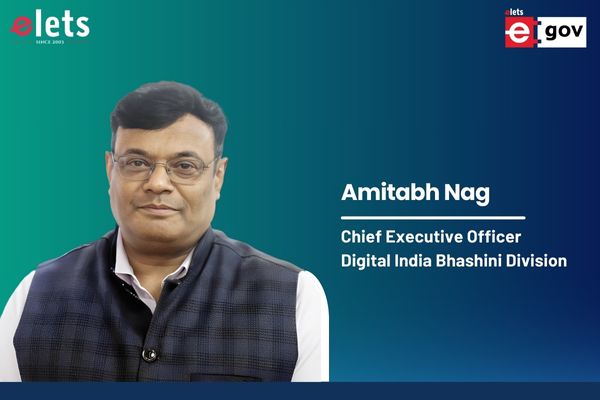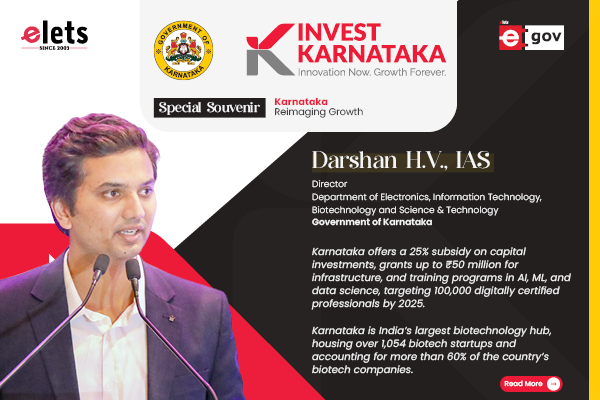
Buoyed by the success of e-Sahakar, the Cooperation Department is looking to introduce a Society Information System which will put critical performance indicators in public domain, Dinesh Oulkar tells Kartik Sharma of ENN
What is your opinion on the contribution of IT in leveraging the scope of governance in the prevalent scenario?

Maharashtra has the largest number and variety of co-operative organisations in India. Sugar co-operatives, co-operative spinning mills, cooperative banks, all have huge memberships. The number touches almost half the population of the state. The role of the Commissioner for Cooperation and Registrar, Cooperative Societies (CCRCS) as the friend philosopher-guide of the co-operative movement will be much more efficient and impactful with the assistance of IT Dinesh Oulkar and ICT technologies. Governance will improve because of e-Sahakar – both within the department as well as within the co-operative institutions in the state.

How has IT helped in transforming the operational and functional performances in your departmental initiatives?

The CCRCS has the responsibilities of developing a conducive atmosphere for the transparent functioning of cooperative organisations. Among other duties, the CCRCS causes to audit each co-operative society annually and further monitors the rectification of audit para in each audit report. The Audit Tracking Model helps the department to closely monitor the performance of the auditors as well as the co-operative societies. In the case of co-operative housing societies aspiring for deemed conveyance, the e-Sahakar module helps to reduce human touch points and foot falls to and from government offices. Introduction of Online Crop Loan Management System helps the department closely monitor the agricultural credit system linkage (NABARD- MSCB-DCCB-PACS). This ensures timely disbursal of crop loans for both Kharif and Rabi and also with timely recoveries with an objective to avoid stagnancy.

Brief us about the few projects being implemented by the department and the distinct e-services being offered.
Broadly, E-sahakar has three modules. The first is the Online Society Process Management System. This module enables the auditors and co-operative societies to function with minimum human intervention. This has reduced hassles for the co-operative societies and the auditors, who can then attract appropriate businesses based on their track record. The module aims at bringing in transparency in the auditors-society selection process. Additionally, the Audit Tracking Model helps the department monitor the performance of the auditors as well as the co-operative societies. This has a farreaching impact on the performance of the co-operative sector as a whole.
The second module of e-Sahakar is the Online Deemed Conveyance Management System. Through this system, the cooperative housing societies can submit their deemed conveyance proposal online to their Registrar. This module has brought transparency and efficiency, much to the relief of cooperative housing societies and its members. The applicant society can now track the progress of their proposal online, thus reducing visits to the Registrar’s office.
The third system that we have introduced under e-Sahakar is the Online Crop Loan Management System. Agricultural credit is one of the most important inputs for the unorganised agricultural production sector. Timely agricultural credit ensures sustained growth in this sector.
District Central Cooperative Banks, along with commercial and scheduled banks, are involved at the grassroot levels for disbursal of crop loans to the farmers and recovery of the same. This module assists the department to appropriately monitor availability of crop loan to eligible farmers in different stages of crop production, and also track its recovery.
How successful has the department been in effectively involving co-operatives located across the region?
e-Sahakar involves online enrollment by cooperative societies and auditors. The department has disseminated guidelines for enrollment and validation to all the stakeholders online and offline. Various training programmes and interactions through video conferences were held during the process. In rural areas, the department is represented by Taluka offices headed by the Assistant or the Deputy Registrar and its staff. These officials have been duly sensitised about the e-Sahakar programme.
The co-operative societies were also invited to create and update their profiles online. Till date, 84 per cent of the 1.73 lakh co-operative societies have been enrolled successfully and their validation is in progress. Similarly, 69 per cent of the 7,472 auditors have been validated till date.
What are the prime challenges faced while utilising these technologies for operational initiatives?
Earlier, a majority of the stakeholders interacted personally with the Registrar’s office, thereby establishing a definite pattern of a one-to-one exchange of views and docuPreviously, majority of the stakeholders interacted personally with the Registrar’s office… This was time-consuming and cumbersome. But after the introduction of e-Sahakar, now people can create and update their profiles without any additional help ments. This was time-consuming and cumbersome for co-operative societies as well as auditors. After the introduction of e-Sahakar, those with the knowledge of IT could create and update their profiles without any additional help. For the others, various training programmes and interactions through video conferences were held.
“Previously, majority of the stakeholders interacted personally with the Registrar’s office… This was time-consuming and cumbersome. But after the introduction of e-Sahakar, now people can create and update their profiles without any additional help”
What is the department’s vision on exploring the potential of IT? Any projects streamlined?
e-Sahakar has brought speed, accuracy and transparency in undertaking the audit of co-operative societies and handling cases of deemed conveyance, much to the benefit of cooperative societies, auditors and co-operative housing societies.
The response from the stakeholders has been encouraging, considering the huge number of enrollment and validation completed within a short time. Moreover, several online proposals of deemed conveyance have also been received by the department. With the introduction of e-Sahakar, the departmental machinery has also understood the modified business process flow. The department understands the importance of minimising human intervention, increasing transparency and reducing footfalls. Building upon the success of e-Sahakar, we are exploring the possibility of introducing a Society Information System which will put critical performance indicators in public domain.
Be a part of Elets Collaborative Initiatives. Join Us for Upcoming Events and explore business opportunities. Like us on Facebook , connect with us on LinkedIn and follow us on Twitter, Instagram.
"Exciting news! Elets technomedia is now on WhatsApp Channels Subscribe today by clicking the link and stay updated with the latest insights!" Click here!













